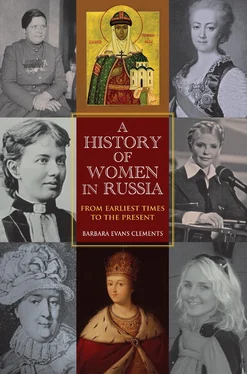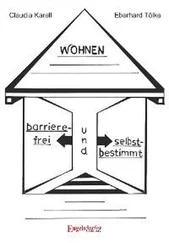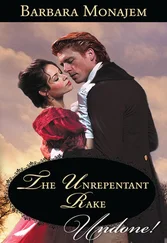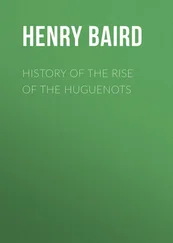Gapova, Elena, ed. Zhenshchiny na kraiu Evropy. Minsk: Evropeiskii Gumanitarnyi Universitet, 2003.
Geisler, Gisela. Women and the Remaking of Politics in Southern Africa: Negotiating Autonomy, Incorporation and Representation . Stockholm: Nordic African Institute, 2004.
Getty, J. Arch, and Oleg Naumov, editors. The Road to Terror: Stalin and the Self-Destruction of the Bolsheviks, 1932–1939. Translated by Benjamin Sher. New Haven: Yale University Press, 1999.
Getty, J. Arch, T. Rittersporn, and Viktor N. Zemskov. “Victims of the Soviet Penal System in the Pre-War Years: A First Approach on the Basis of Archival Evidence.” American Historical Review 98, no. 4 (October 1993): 1017–49.
Gilmour, Julie, and Barbara Evans Clements. “‘If You Want to Be like Me, Train!’: The Contradictions of Soviet Masculinity.” In Russian Masculinities in History and Culture, edited by Barbara Evans Clements, Rebecca Friedman, and Dan Healey. Houndmills, UK: Palgrave, 2002.
Girdzijauskas, Simonas. “Special Lithuanian Presidential Election—Adamkus Elected President.” Joint Baltic American National Committee, July 12, 2004. http://www.jbanc.org/ltback.html. Accessed October 13, 2007.
Glagoleva, Olga. Dream and Reality of Russian Provincial Young Ladies, 1700–1850. Carl Beck Papers in Russian and East European Studies, no. 1405. Pittsburgh, Penn.: Center for Russian and East European Studies, 2000.
Glickman, Rose L. Russian Factory Women: Workplace and Society, 1880–1914. Berkeley: University of California Press, 1984.
Goldman, Wendy Z. Women at the Gates: Gender, Politics, and Planning in Soviet Industrialization . Cambridge: Cambridge University Press, 2002.
——. Women, the State, and Revolution: Soviet Family Policy and Social Life, 1917–1936. Cambridge: Cambridge University Press, 1993.
Goncharov, Iu. M. “Zhenshchiny frontira: Sibiriachki v regional’nym sotsiume serediny XIX–nachala XIX vv.” In Sostial’naia istoriia: Ezhegodnik 2003: Zhenskaia i gendernaia istoriia. Moscow: Rosspen, 2003.
Gorshkov, M. K., and N. E. Tikhonova, editors. Zhenshchina novoi Rossii: Kakaia ona? Kak zhivet? K chemy stremitsia? Moscow: Rosspen, 2002.
Harris, Colette. “The Changing Identity of Women in Tajikistan in the Post-Soviet Period.” In Gender and Identity Construction: Women of Central Asia, the Caucasus, and Turkey, edited by Feride Acar and Ayse Günes-Ayata. Leiden: Brill, 2000.
Healey, Dan. “Lesbian Lives Observed in the Gulag: Memoirs and the Memory of Same-Sex Love in Forced Labor Camps.” Paper presented at the annual meeting of the American Association for the Advancement of Slavic Studies, Boston, 2009.
Heldt, Barbara. Terrible Perfection: Women and Russian Literature. Bloomington: Indiana University Press, 1987.
Hellie, Richard. Slavery in Russia, 1450–1725. Chicago: University of Chicago Press, 1982.
——. “Women and Slavery in Moscow.” Russian History 10, pt. 2 (1983): 213–29.
Hemment, Julie. Empowering Women in Russia: Activism, Aid, and NGOs. Bloomington: Indiana University Press, 2007.
Henriksson, Anders. “Minority Nationalism and the Politics of Gender: Baltic German Women in the Late Imperial Era.” Journal of Baltic Studies 27, no. 3 (1996): 213–28.
Herlihy, Patricia. The Alcoholic Empire: Vodka & Politics in Late Imperial Russia. Oxford: Oxford University Press, 2002.
Holley, David. “Russian Journalist Remembered on Anniversary of Slaying.” Los Angeles Times, October 8, 2007. http://www.latimes.com. Accessed October 10, 2008.
Houlbrooke, Ralph A. The English Family, 1450–1700. London: Longman, 1984.
Hughes, Lindsey. Sophia, Regent of Russia, 1657–1704. New Haven: Yale University Press, 1990.
Hyman, Paula E. Gender and Assimilation in Modern Jewish History: The Roles and Representation of Women . Seattle: University of Washington Press, 1995.
Iashchenko, Oksana. “Zametky k etnographii gorodskoi zhizni: Povsednevnost’ gomel’chanok v nachale xx. v.” In Zhenshchiny na kraiu Evropy, edited by Elena Gapova. Minsk: Evropeiskii Gumanitarnyi Universitet, 2003.
Igumnova, Z. P. Zhenshchiny Moskvy v gody grazhdanskoi voiny. Moscow: Moskovskii rabochii, 1958.
Ilic, Melanie. “Traktoristka: Representations and Realities.” In Women in the Stalin Era, edited by Melanie Ilic. Houndmills, UK: Palgrave, 2001.
——. “Women in the Khrushchev Era: An Overview.” In Women in the Khrushchev Era, edited by Melanie Ilic, Susan E. Reid, and Lynne Attwood. Houndmills, UK: Palgrave, 2004.
Il’iukhov, A. A. Prostitutsiia v Rossii: S XVII veka do 1917 goda . Moscow: Novyi khronograf, 2008.
Ishkanian, Armine. “Working at the Local-Global Intersection: The Challenges Facing Women in Armenia’s Nongovernmental Organization Sector.” In Post-Soviet Women Encountering Transition: Nation Building, Economic Survival, and Civic Activism, edited by Kathleen Kuehnast and Carol Nechemias. Washington, D.C.: Woodrow Wilson Center Press, 2004.
Jaworski, Rudolf, and Bianka Pietrow-Ennker, editors. Women in Polish Society. Boulder, Colo.: East European Monographs, 1992.
Johanson, Christine. Women’s Struggle for Higher Education in Russia, 1855–1900. Montreal: McGill-Queen’s University Press, 1987.
Johnson, Janet Elise. Gender Violence in Russia: The Politics of Feminist Intervention . Bloomington: Indiana University Press, 2009.
——. “Sisterhood versus the ‘Moral’ Russian State: The Postcommunist Politics of Rape.” In Post-Soviet Women Encountering Transition: Nation Building, Economic Survival, and Civic Activism, edited by Kathleen Kuehnast and Carol Nechemias. Washington, D.C.: Woodrow Wilson Center Press, 2004.
Johnson, Robert Eugene. Peasant and Proletarian: The Working Class of Moscow in the Late Nineteenth Century . New Brunswick, N.J.: Rutgers, 1979.
Kaiser, Daniel H. “‘He Said, She Said’: Rape and Gender Discourse in Early Modern Russia.” Kritika 3, no. 2 (Spring 2002): 197–216.
——. “The Poor and Disabled in Early Eighteenth-Century Russian Towns.” Journal of Social History 32, no. 1 (1998): 125–55.
Kaluzhskie bol’shevichki . Kaluga: n.p., 1960.
Kamp, Marianne. The New Woman in Uzbekistan: Islam, Modernity, and Unveiling under Communism . Seattle: University of Washington Press, 2006.
Karciauskaite, Indre. “For Women’s Rights, Church, and Fatherland: The Lithuanian Catholic Women’s Organization, 1908–1940.” Aspasia 1 (2007): 128–52.
Katz, Katarina. Gender, Work, and Wages in the Soviet Union: A Legacy of Discrimination . Houndmills, UK: Palgrave, 2001.
Kay, Rebecca. “Meeting the Challenge Together? Russian Grassroots Women’s Organizations and the Shortcomings of Western Aid.” In Post-Soviet Women Encountering Transition: Nation Building, Economic Survival, and Civic Activism, edited by Kathleen Kuehnast and Carol Nechemias. Washington, D.C.: Woodrow Wilson Center Press, 2004.
——. Men in Contemporary Russia: The Fallen Heroes of Post-Soviet Change ? Aldershot, UK: Ashgate, 2006.
Kebalo, Martha Kichorowska. “Exploring Continuities and Reconciling Ruptures: Nationalism, Feminism, and the Ukrainian Women’s Movement.” Aspasia 1 (2007): 36–60.
Kelly, Catriona. A History of Russian Women’s Writing, 1820–1992. Oxford: Clarendon Press, 1994.
——. “Teacups and Coffins: The Culture of Russian Merchant Women, 1850–1917.” In Women in Russia and Ukraine, edited by Rosalind Marsh. Cambridge: Cambridge University Press, 1996.
Читать дальше












